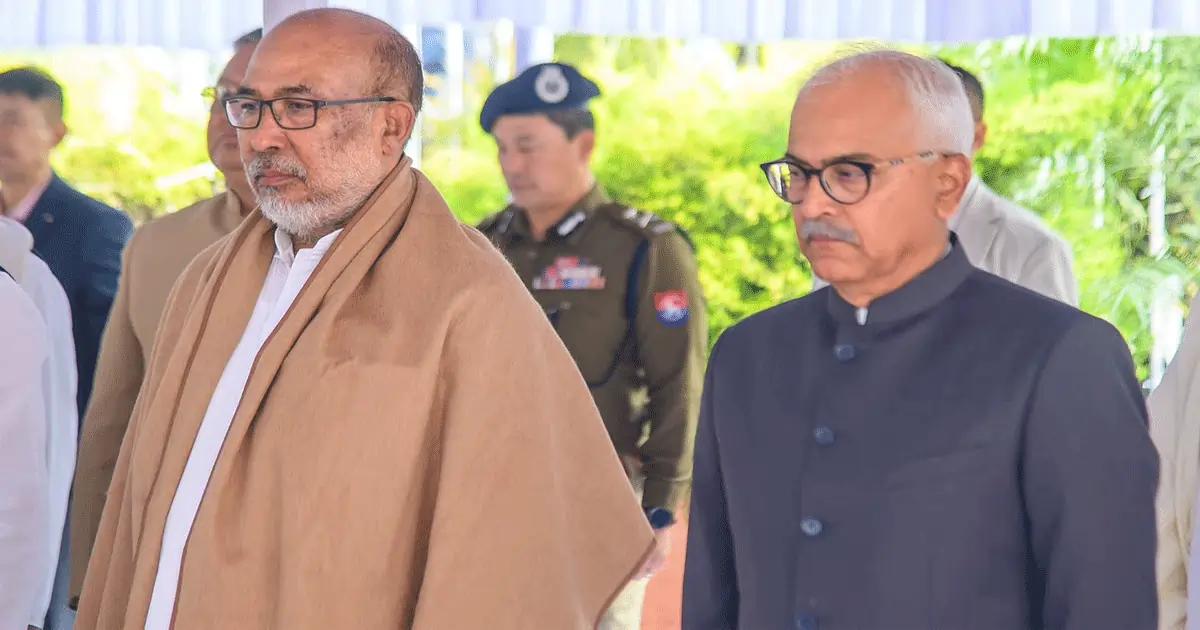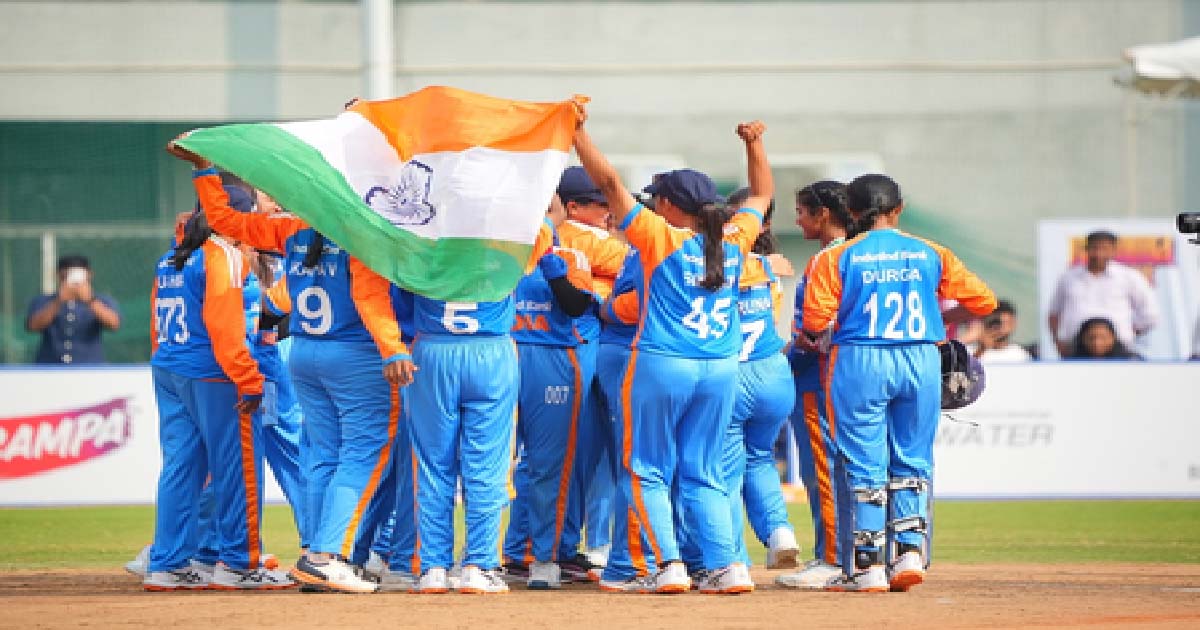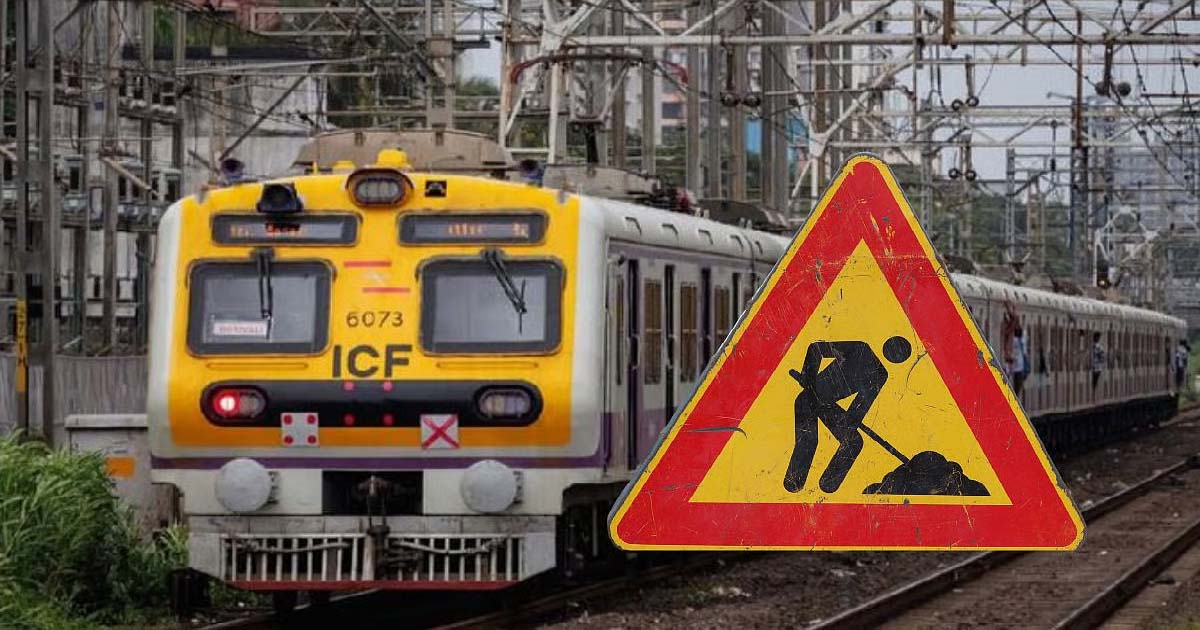National News
President’s Rule Or New CM To Take Charge? What’s Next For Manipur After N Biren Singh’s Resignation

Manipur: Manipur Chief Minister N Biren Singh on Sunday stepped down from his post after an intense meeting with Union Home Minister Amit Shah in Delhi. His resignation came amid buzz over a no-confidence motion and floor test by Congress on Monday.
In his letter to the governor, Singh said, “It has been an honour to serve the people of Manipur thus far. I am extremely grateful to the central government for timely actions, interventions, developmental work and implementation of various projects for safeguarding the interests of every single Manipuri.”
The Congress party has reacted sharply to Biren Singh’s resignation, calling it a move intended to ‘save face’.
After N Biren Singh quit from the CM post, questions have arisen about the future of the violence-marred state. Given the contents of Biren Singh’s resignation letter, in which he urged the Central government to continue the actions taken by him in the interest of the Manipuri people, it is being speculated that the Centre will soon take over the state through President’s rule.
President’s rule seems a viable option because Parliament is in session. To implement President’s rule, the government needs to take approval from both Houses.
According to reports, until further arrangements are made in the state, the Governor has asked the outgoing Chief Minister to continue as a caretaker CM with limited powers.
According to reports, Biren Singh, while tendering his resignation, recommended that the Assembly be kept in suspended animation, making it possible for the MLAs to reach a consensus on his replacement.
Shortly after Biren Singh submitted his resignation, Governor Bhalla issued a notification declaring the previous order summoning the Assembly, which was set to convene on Monday, “null and void”.
There are news reports citing sources that the BJP will come out with the new CM face within the “next 48 hours”.
The Manipur Assembly will get dissolved by February 12 if BJP fails to stake claim during this period, as per reports.
BJP high command has initiated the process to pacify the disgruntled MLAs and has called them for discussion after their rebellion forced Chief Minister N Biren Singh to step down.
It has been learned that at least 17 MLAs out of the 37 BJP MLAs had rebelled against Biren Singh over his handling of the ethnic violence in the state.
With various developments unfolding, it has become impossible to predict the future course at the moment. Whether Manipur will have a new CM or the Centre will take control of the violence-marred state will become clear in the coming days.
Crime
Kerala teacher sentenced to life imprisonment in POCSO case

Kannur, Nov 15: In the case involving the sexual assault of a Class 4 girl at Palathayi in Kerala’s Kannur, former Bharatiya Janata Party (BJP) leader and teacher K. Padmarajan, on Saturday, has been sentenced to life imprisonment along with fines.
He has also been awarded 40 years of imprisonment under POCSO charges.
The sentence was delivered by the Thalassery Fast-Track POCSO Court.
The court had found Padmarajan guilty on Friday.
The offences proved against him carry punishments ranging from a maximum of 20 years to life imprisonment.
The case had triggered political controversy because the investigation team was changed five times and the interim charge sheet did not include POCSO sections.
Charges against the accused included Section 376AB (rape), and offences under the POCSO Act.
Padmarajan was found guilty of sexually assaulting a 10-year-old girl inside and outside her school at Palathayi in Kannur, on three occasions between January and February 2020.
The complaint against the teacher was handed over to the Thalassery Deputy Superintendent of Police by the Panoor Police.
The initial police investigation had concluded that the complaint was false.
However, there was strong public protest over the failure to act against the accused.
On April 15, 2020, Padmarajan was arrested from a relative’s house where he had been hiding.
The investigation was later transferred to the Crime Branch.
Without including POCSO charges, the Crime Branch filed a charge sheet just hours before the 90-day deadline expired.
After five different investigation teams handled the case, the final charge sheet was submitted in May 2021.
In February 2024, the trial began, and the Thalassery POCSO Court ultimately found the accused guilty.
The prosecution had said on Friday that the survivor received justice on Children’s Day (November 14) and that the accused deserved the maximum punishment.
Before sentencing, the prosecution again urged the court on Saturday to impose the harshest possible penalty.
The defence said that the case was politically motivated.
Padmarajan pleaded for leniency, saying he had a family consisting of his wife, children and mother.
The court responded that it had examined only the merits of the case.
Meanwhile, senior CPI-M leader and former legislator M.V. Jayarajan hailed the court judgment and said there was nothing political in the order.
National News
India storm into semis of 2025 Women’s T20 World Cup for the Blind

Bengaluru, Nov 15: India advanced to the semi-finals of the Cricket for the Blind 2025 Women’s T20 World Cup with a commanding ten-wicket win over the USA.
In only their sixth match of the tournament, India secured their fourth consecutive win, defeating the USA by ten wickets in a contest that was as symbolic as it was one-sided.
For the USA Women’s Blind Cricket Team, this was a remarkable occasion. As they made their World Cup debut, the team was assembled from scratch over the past year, shaped through an unprecedented developmental partnership with Indian institutions that identified, trained, and nurtured visually impaired cricketers across the United States.
Opting to bat first, USA fought hard but were limited to 60/8 in 20 overs, owing to India’s disciplined bowling and sharp fielding. Tatyana (17 off 41, B2) and Caroline (12 off 26, B2) demonstrated resilience against a relentless attack, but wickets kept falling as India’s bowlers kept tight lines and created pressure throughout.
Simranjeet Kour (B2), Sunita Srathe (B2), Simu Das (B1), and Ganga Kadam (B3) each picked up a wicket, while India’s fielders contributed with multiple run-outs — a testament to their coordination across all categories.
What followed was an extraordinary display of batting authority. Chasing just 61, India romped home in 3.3 overs without losing a wicket. Player of the Match Simranjeet Kour blasted an unbeaten 31 off 12 balls (B2), while Kavya N.R (B3) complemented her with a swift 21 off 12*, sealing the match in minutes. The gulf in experience showed, yet the spirit displayed by the young USA side reflected the courage and commitment fueling their rise on the global stage.
India now turn their attention to what promises to be one of the marquee fixtures of the tournament: a high-voltage showdown against arch-rivals Pakistan on Sunday in Colombo.
National News
Mumbai Local Train Update: Megablock On Central, Harbour, Trans-Harbour & Western Railway Lines On Nov 16; Check Details

Mumbai: Mumbai suburban railway commuters will face major travel disruptions on Sunday, 16 November 2025, as Central, Harbour, Trans-Harbour and Western Railway authorities have planned extensive maintenance work, resulting in a major megablock across multiple corridors.
The block has been scheduled for several hours during the day and will affect both Up and Down services with diversions, cancellations, and restricted operational stretches. Passengers have been urged to plan their journeys in advance and expect changes in train timings, halts and routes.
On the Central Line, the megablock will be enforced between CSMT Mumbai and Vidyavihar on the Up and Down slow tracks between 10.55 am and 3.55 pm. Down slow locals departing CSMT between 10:48 hrs and 15:45 hrs will be diverted via the fast line up to Vidyavihar while halting at limited stations, Byculla, Parel, Dadar, Matunga, Sion and Kurla, before switching back to the slow track. Similarly, Up slow services leaving Ghatkopar between 10:19 hrs and 15:52 hrs will run on the fast line until CSMT and halt at Kurla, Sion, Matunga, Dadar, Parel and Byculla.
On the Harbour Line, services between Vashi and Panvel will remain affected from 11.05 am to 4.05 pm. During this period, Up trains from Panvel to CSMT between 10:33 hrs and 15:49 hrs, and Down trains from CSMT to Belapur/Panvel between 09:45 hrs and 15:12 hrs, will remain cancelled. To ease passenger movement, special trains will operate between CSMT and Vashi during the block.
The Trans-Harbour Line will also face restrictions between 11.05 am and 4.05 pm, and services will run only between Thane and Vashi/Nerul. Up trains from Panvel to Thane between 11:02 hrs and 15:53 hrs, and Down trains from Thane to Panvel between 10:01 hrs and 15:20 hrs, will remain suspended. The Uran Line will function normally and will not be affected by the block.
Meanwhile, the Western Railway will operate a five-hour Jumbo Block between 10.00 am and 3.00 pm on the fast track between Ram Mandir, Borivali and Goregaon. Up fast services will shift to slow lines between Borivali and Andheri, while Down fast trains will run via slow tracks between Andheri and Goregaon.
Passengers have been advised to follow announcements, use real-time railway apps and consider alternate travel arrangements to avoid inconvenience.
-

 Crime3 years ago
Crime3 years agoClass 10 student jumps to death in Jaipur
-

 Maharashtra1 year ago
Maharashtra1 year agoMumbai Local Train Update: Central Railway’s New Timetable Comes Into Effect; Check Full List Of Revised Timings & Stations
-

 Maharashtra1 year ago
Maharashtra1 year agoMumbai To Go Toll-Free Tonight! Maharashtra Govt Announces Complete Toll Waiver For Light Motor Vehicles At All 5 Entry Points Of City
-

 Maharashtra1 year ago
Maharashtra1 year agoFalse photo of Imtiaz Jaleel’s rally, exposing the fooling conspiracy
-

 National News1 year ago
National News1 year agoMinistry of Railways rolls out Special Drive 4.0 with focus on digitisation, cleanliness, inclusiveness and grievance redressal
-

 Maharashtra1 year ago
Maharashtra1 year agoMaharashtra Elections 2024: Mumbai Metro & BEST Services Extended Till Midnight On Voting Day
-

 National News1 year ago
National News1 year agoJ&K: 4 Jawans Killed, 28 Injured After Bus Carrying BSF Personnel For Poll Duty Falls Into Gorge In Budgam; Terrifying Visuals Surface
-

 Crime1 year ago
Crime1 year agoBaba Siddique Murder: Mumbai Police Unable To Get Lawrence Bishnoi Custody Due To Home Ministry Order, Says Report












